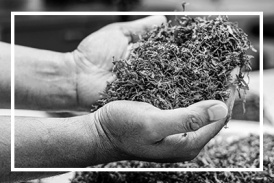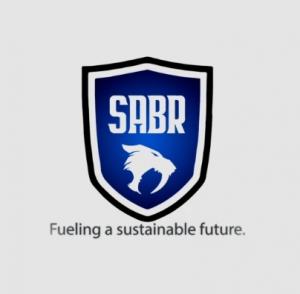SABR Coalition Welcomes Biodiesel Provisions in Senate Tax Bill
Sustainable Advanced Biofuel Refiners successful in getting short-term transitional relief for biodiesel producers in Senate budget-reconciliation bill.
JEFFERSON CITY, MO, UNITED STATES, July 1, 2025 /EINPresswire.com/ -- The Sustainable Advanced Biofuel Refiners (SABR) Coalition, a national biodiesel trade association made up of over 70 organizational members throughout the biodiesel value chain, applauds the biofuel provisions added to the Senate budget-reconciliation legislation known as the “big, beautiful bill.” Introduced on June 28, the Senate version of the tax bill includes provisions for an immediate extension of the Section 40A Small Agri-Biodiesel Producer Tax Credit. The value of the credit increases from 10 cents to 20 cents per gallon on the first 15 million gallons. It also makes the credit transferable so that pass-through entities such as limited liability companies (LLCs) and S corporations can access the credit and monetize it. This is important transitional relief to biodiesel producers, many of which have shut down this year since the biodiesel blenders tax credit (BTC) expired on Dec. 31, 2024, while the industry awaits implementing regulations for its replacement, the Clean Fuel Production Credit (Section 45Z).
“Finding some transitional relief in 2025 has been SABR’s top priority,” said SABR CEO Joe Jobe.
The Senate bill also introduces several key improvements to Section 45Z, which will take effect in 2026. Some changes mirror those passed by the House of Representatives on May 22 while others differ significantly. The differences must be reconciled before the legislation can be sent to President Donald Trump for signing into law by the July 4 target date.
Like the House revisions, these improvements by the Senate include elimination of the failed theory of indirect land-use change (ILUC) that penalizes domestic agricultural feedstocks in modeling greenhouse gas (GHG) calculations.
A critical difference between the Senate’s modifications to 45Z and both existing law and changes passed by the House is that the Senate version seeks to put sustainable aviation fuel (SAF) and on-road biofuels such as biodiesel and renewable diesel on equal footing. Currently, SAF producers are eligible for up to $1.75 per gallon under Section 45Z, provided certain criteria are met, but biodiesel manufacturers can only receive up to a maximum of $1 per gallon.
While the House bill extends Section 45Z from its current sunset date of Dec. 31, 2027, to Dec. 31, 2031, the Senate version shortens this extension by two years and allows transferability of the credit through 2029.
Earlier modifications to Section 45Z from the Senate Finance Committee allowed feedstocks from outside the U.S. to claim the credit at a 20 percent discount to domestic inputs. Updated language in the full Senate bill, however, matches the House version and only allows feedstocks from North America to qualify for the incentive.
SABR reiterates that, because these changes do not take effect until 2026, it is important that Congress provides transitional relief now as a policy bridge to 2026.
“The amendments to the Section 45Z Clean Fuel Production Credit will make for dramatically better energy, agriculture and clean transportation policy,” Jobe said. “But those amendments take effect in 2026, and SABR has been educating members of Congress about the severe immediate harm to the biodiesel industry caused by the lack of policy clarity. SABR has been urging immediate extension of the Section 40A Small Agri-Biodiesel Producer Tax Credit and applauds its inclusion. While most biofuel advocates have been focused solely on ‘fixing’ 45Z beginning next year in the reconciliation bill, a top priority for SABR has been getting transitional relief for biodiesel producers this year. We thank Sen. Chuck Grassley and Finance Chair Mike Crapo for their work on this measure.”
About the SABR Coalition
Sustainable Advanced Biofuel Refiners (SABR) is a coalition of stakeholders that have invested in building out America’s first advanced biofuel—biodiesel. Biodiesel is the most cost-effective means to reduce greenhouse gas (GHG) emissions from medium- and heavy-duty vehicles, providing numerous economic, environmental and energy security benefits. It is produced from renewable resources such as soybean oil, used cooking oil and animal fats. SABR includes stakeholders from every link in the value chain from feedstock growers to biodiesel producers, distributors, retailers and consumers, as well as infrastructure, product and service providers. For more information, please visit www.sabrcoalition.org.
Joe Jobe
Sustainable Advanced Biofuel Refiners (SABR) Coalition
+1 573-680-1948
joe@rockhouse.us
Visit us on social media:
LinkedIn
Facebook
Legal Disclaimer:
EIN Presswire provides this news content "as is" without warranty of any kind. We do not accept any responsibility or liability for the accuracy, content, images, videos, licenses, completeness, legality, or reliability of the information contained in this article. If you have any complaints or copyright issues related to this article, kindly contact the author above.
Guinness World Record Most Variations of Tiramisu in the World
Top Digital Marketers Use 'The Tipping Point' to Shift Public Opinion and Drive Change in Industry and Workplace Culture
Paresthesia Treatment Market: Heading for $7.9 Billion by 2031 — and New Therapies Are Already Reshaping the Landscape
Więcej ważnych informacji
 Jedynka Newserii
Jedynka Newserii

 Jedynka Newserii
Jedynka Newserii

Konsument

Proces deregulacji nie dotyczy branży tytoniowej. Jest propozycja kolejnej ustawy w ciągu kilku miesięcy
Najpierw wprowadzenie podatku akcyzowego na saszetki nikotynowe, potem propozycja przepisów, które zmierzają do wycofania tych produktów z rynku – przedstawiciele środowisk biznesowych podkreślają, że przygotowywane przez resort zdrowia przepisy wprowadzają chaos legislacyjny w branży tytoniowej. To tym bardziej dziwi przedsiębiorców, że stoi w opozycji do prowadzonego przez rząd procesu deregulacji w gospodarce. W dodatku może mieć negatywne skutki dla budżetu państwa i doprowadzić do skokowego wzrostu szarej strefy.
Bankowość
Grzyby rozkładające tekstylia nagrodzone w konkursie ING. 1 mln zł trafi na innowacyjne projekty dla zrównoważonych miast

Firma Myco Renew, która opracowała technologię rozkładającą tekstylia za pomocą grzybów, została laureatem siódmej edycji Programu Grantowego ING. Motywem przewodnim konkursu skierowanego do start-upów i młodych naukowców był tym razem zrównoważony rozwój miast i społeczności. Łącznie na nagrodzone innowacyjne projekty trafił 1 mln zł. Wśród nich są także bezzałogowe statki powietrzne dostarczające defibrylatory czy system do zbierania deszczówki w blokach.
Prawo
Trwają próby wzmocnienia dialogu społecznego. Niespokojne czasy wymuszają większe zaangażowanie społeczeństwa w podejmowanie decyzji

Według zapowiedzi szefowej Komisji Europejskiej Ursuli von der Leyen głos partnerów społecznych i dialog społeczny będą stały w centrum procesu decyzyjnego w Europie. Taki jest cel podpisanego w marcu Paktu na rzecz europejskiego dialogu społecznego. Potrzeba wzmocnienia głosu społeczeństwa jest również podkreślana na forum krajowym. Rząd planuje reformę Rady Dialogu Społecznego, by usprawnić pracę tej instytucji, a przedsiębiorcy wzywają do rzetelnego konsultowania ze stroną społeczną ustaw, które wychodzą z rządu.
Partner serwisu
Szkolenia

Akademia Newserii
Akademia Newserii to projekt, w ramach którego najlepsi polscy dziennikarze biznesowi, giełdowi oraz lifestylowi, a także szkoleniowcy z wieloletnim doświadczeniem dzielą się swoją wiedzą nt. pracy z mediami.








.gif)

 |
| |
| |
|